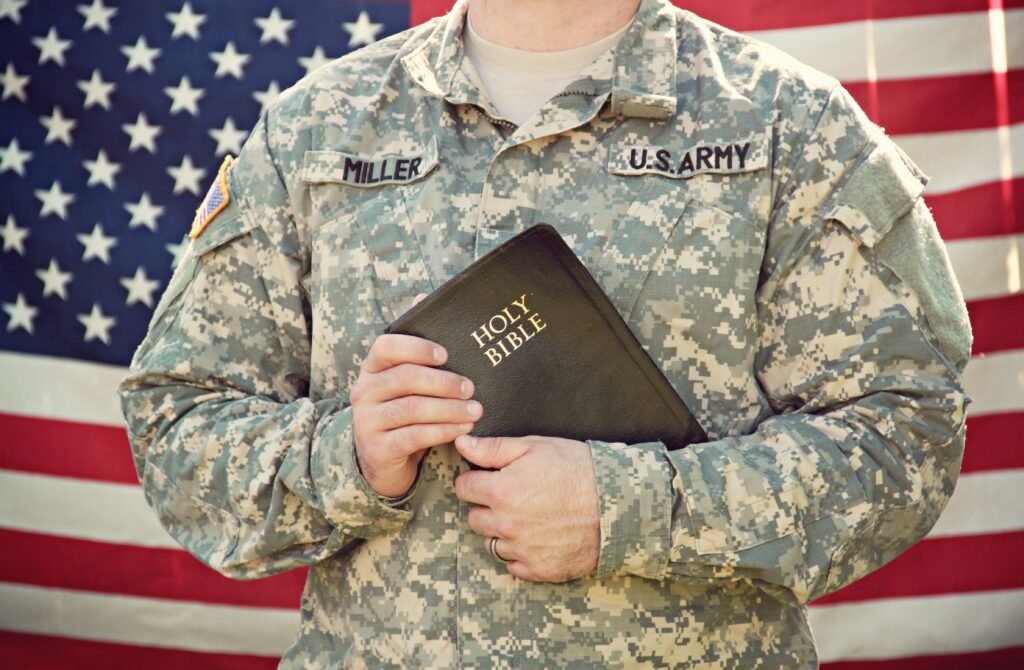You’ve dedicated a part of your life to serving your country, and now it’s time to understand how that commitment is honored through VA health care benefits. While the Department of Veterans Affairs strives to extend its support to all who have donned the uniform, there are specific criteria determining eligibility for these health benefits. Some veterans may find themselves on the outside looking in due to various reasons such as the nature of their discharge, the length of service, or income levels. Our mission is to shed light on these nuances, ensuring you have the clarity and information needed to uncover all the benefits you’re entitled to and understand who might not be eligible for VA health care. Your service should never go unrecognized, and armed with knowledge, you’ll be better prepared to take the next steps toward the care and benefits you’ve rightfully earned.

This image is property of images.pexels.com.
Eligibility Criteria for VA Health Care Benefits
Basic eligibility requirements
If you’re trying to understand if you qualify for VA health care benefits, know that your service in the Armed Forces plays a significant role. Generally, you’re eligible if you served in active military, naval, or air service and didn’t receive a dishonorable discharge. Remember, if you were a part-time reservist or a member of the National Guard, you must have been called to active duty by a federal order to meet the basic eligibility requirements.
Minimum duty requirements
It’s crucial to be aware of the minimum duty requirements that come into play for eligibility. Typically, you must have served 24 continuous months or the full period for which you were called to active duty. There are exceptions, particularly for early discharge due to a service-connected disability, hardship, or “the convenience of the government.”
Discharge conditions affecting eligibility
Your type of discharge is a defining factor in your eligibility. You should maintain a discharge other than dishonorable to retain eligibility for VA health care benefits. Conditions like a bad conduct or dishonorable discharge typically exclude you from these benefits, but there may be recourse through discharge upgrade processes.
Understanding the Enrollment Priority Groups
Overview of Priority Groups
To manage demand for Veterans Affairs services, there are eight Priority Groups that you might fall into based on factors like service-connected disabilities, income levels, and your service history. It’s a system designed to ensure that resources are allocated effectively and veterans with the greatest needs receive care first.
How Priority Groups determine access to care
Your Priority Group impacts your access to care by determining when and how quickly you can be served. For instance, veterans in lower-numbered groups (like Priority Group 1) will have priority access to treatment over those in higher numbers. Also, certain benefits and services might be more readily available to you depending on your group.
Changes in Priority Group status
You should be mindful that changes in your circumstances can alter your Priority Group status. For example, a change in your income or the development of a service-connected disability can shift you to a higher or lower priority status, impacting your access to VA health care services.
Dishonorable Discharge and Its Implications
Definition of dishonorable discharge
A dishonorable discharge is the most severe form of punitive discharge in the military, typically resulting from serious offenses like desertion or conduct unbecoming of military personnel.
Impact on VA Health Care eligibility
Unfortunately, a dishonorable discharge usually means you’re ineligible for VA health care benefits. This loss of eligibility can affect not just health care, but also other vital services, including housing support and educational benefits.
Legal avenues for discharge upgrades
If your service ended in a dishonorable discharge, and you believe it was unjust or erroneous, you have legal avenues to pursue an upgrade, such as applying to the Discharge Review Board. Achieving an upgrade can restore eligibility for VA benefits.
Undocumented Veterans and Eligibility Issues
Status of undocumented veterans
You may find it surprising, but some veterans are undocumented immigrants who served with the promise of citizenship. Despite their service, their lack of legal status in the United States can complicate access to VA benefits.
Challenges faced in accessing benefits
Undocumented veteran status brings numerous challenges in accessing VA health care benefits. These can range from fear of deportation when seeking assistance to the inability to meet the proof of residence requirements necessary for benefit eligibility.
Potential pathways to eligibility
For undocumented veterans, there are potential pathways to eligibility for VA benefits. This can include legal assistance in adjusting immigration status or pursuing citizenship through military service as promised upon enlistment in some cases.

This image is property of images.pexels.com.
Time Served and Eligibility
Minimum service duration for eligibility
To be clear, most veterans must serve for a minimum amount of time to be eligible for VA health care benefits. The standard is usually a 24-month continuous service requirement, unless discharged for a service-connected disability or under specific conditions.
Exceptions to service duration rules
Keep in mind, exceptions to the minimum service duration requirements do exist. If your discharge was for a disability that was caused—or made worse—by your active-duty service, or due to hardship or early out, you may still qualify for VA health care benefits.
Impact of service duration on Priority Groups
The length of your service can affect which Priority Group you fall into. For example, veterans who served a shorter duration or had less severe service-connected disabilities may be assigned a higher Priority Group number, affecting wait times for treatment.
Income Level Considerations
Income thresholds for benefits
Your income plays a pivotal role in determining your eligibility for VA health care benefits. The VA establishes income thresholds, and if your income surpasses a certain level, you may be placed in a higher Priority Group or even be required to pay copays.
Means testing and its impact on eligibility
Means testing is how the VA assesses your financial status to determine eligibility and Priority Group. As your financial circumstances change, so could your means test assessment, impacting your health care benefits access.
Income-related changes in Priority Group placement
An increase or reduction in your income could lead to changes in your Priority Group placement. If your income drops below the VA’s thresholds, you may be moved to a lower Priority Group and face lessened health care costs.

This image is property of images.pexels.com.
The Role of Service-Connected Disabilities
Defining service-connected disabilities
Service-connected disabilities are those that were incurred or aggravated by your military service. These disabilities are rated by the VA based on severity and can include physical conditions as well as mental health issues.
How disabilities affect eligibility
Having a service-connected disability can significantly affect your eligibility for VA health care benefits by potentially granting you a higher priority status. It can also result in additional benefits, like disability compensation.
Reevaluation and changes in disability status
It’s important to keep the VA informed about the status of your disability because changes can affect your benefits. If your condition worsens or improves, you should have it reevaluated since this might alter your Priority Group and the level of care you’re entitled to receive.
Lack of a Qualifying VA Health Care Enrollment Period
What constitutes a qualifying period
A qualifying period refers to the time during which you served on active duty and are considered eligible for VA health care benefits. Lacking this, typically due to a short duration of service or issues like an undesirable discharge, might make you ineligible.
Consequences of lacking a qualifying enrollment period
Not having a qualifying enrollment period can lead to the denial of VA health care benefits. However, remember that special circumstances or changes in your service record could potentially alter this status.
Special cases and exemptions
Despite lacking a qualifying enrollment period, there are cases where you could still receive benefits. This includes situations such as a VA determination that your discharge was due to a service-connected condition, for hardship, or “the convenience of the government.”

National Guard and Reserve Members’ Eligibility
Eligibility overview for National Guard and Reserve members
If you’re a member of the National Guard or Reserves, you’re typically eligible for VA health care benefits if you’ve served full-time and called to active duty by a federal order.
Comparison with active-duty service eligibility
Your eligibility as a National Guard or Reserve member is quite similar to active-duty service eligibility, with the primary difference being tied to the nature of your activation orders. Federal orders that specify a call to active duty and the full period of which was served are usually a requirement for similar benefits as active-duty service members receive.
Activation requirements for VA Health Care
Specifically for VA Health Care eligibility, you must have been activated under Title 10 or Title 32 orders for the purpose of responding to a national emergency and completed the term of service specified in your orders.
Finding Alternative Health Care Solutions
Community health care options for ineligible veterans
Don’t worry if you’re a veteran who’s ineligible for VA health care benefits. Community health options are available, such as local clinics that offer services on a sliding scale or at reduced costs.
Non-profit organizations offering assistance
Many non-profit organizations are dedicated to helping veterans like you, providing everything from temporary housing and job training to medical care. It’s worth exploring these alternative avenues for support.
Strategies for securing health care without VA benefits
By being proactive and resourceful, you can secure health care even without VA benefits. Consider looking into state or local government programs, leveraging the Affordable Care Act’s Marketplace, or checking into employer-sponsored health plans.
You see, your military service doesn’t define your access to health care alone. With the array of options and support systems available, you can find the assistance that best meets your needs and ensures you’re cared for. Remember, no veteran stands alone, and your journey after service is still filled with opportunities for care, connection, and community.

